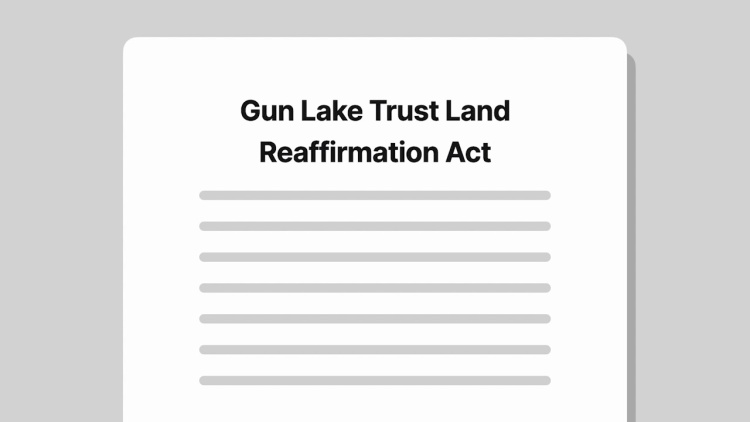Patchak v. Zinke, Secretary of the Interior, et al. [Patchak II]
United States Supreme Court
583 U.S. 244, 138 S. Ct. 897 (2018)
- Written by Jack Newell, JD
Facts
The Match-E-Be-Nash-She-Wish Band (the tribe) of Indians was an American Indian tribe in Michigan. After receiving recognition as a tribe, the tribe designated an area of land on which it wanted to build a casino. The secretary of the interior, Ryan Zinke (defendant) agreed to hand the parcel of land (the Bradley property) over to the tribe. David Patchak (plaintiff) sued Zinke, claiming that the Department of the Interior did not have statutory authority to give the Bradley property to the tribe. The district court dismissed Patchak’s case. The District of Columbia Circuit reversed. The United States Supreme Court affirmed the appellate court's decision. While the case was on remand in the district court, Congress passed the Gun Lake Act due to the influence of the tribe. The Gun Lake Act mandated that the Bradley property could not be the subject of a case in federal court. The Gun Lake Act also mandated that all pending cases in federal court about the property be dismissed. The district court dismissed the case pursuant to the Gun Lake Act. The District of Columbia Circuit affirmed. Patchak appealed to the Supreme Court, claiming that the Gun Lake Act violated the separation of powers under the Constitution.
Rule of Law
Issue
Holding and Reasoning (Thomas, J.)
Concurrence (Breyer, J.)
Concurrence (Ginsburg, J.)
Dissent (Roberts, C.J.)
What to do next…
Here's why 899,000 law students have relied on our case briefs:
- Written by law professors and practitioners, not other law students. 47,000 briefs, keyed to 994 casebooks. Top-notch customer support.
- The right amount of information, includes the facts, issues, rule of law, holding and reasoning, and any concurrences and dissents.
- Access in your classes, works on your mobile and tablet. Massive library of related video lessons and high quality multiple-choice questions.
- Easy to use, uniform format for every case brief. Written in plain English, not in legalese. Our briefs summarize and simplify; they don’t just repeat the court’s language.





